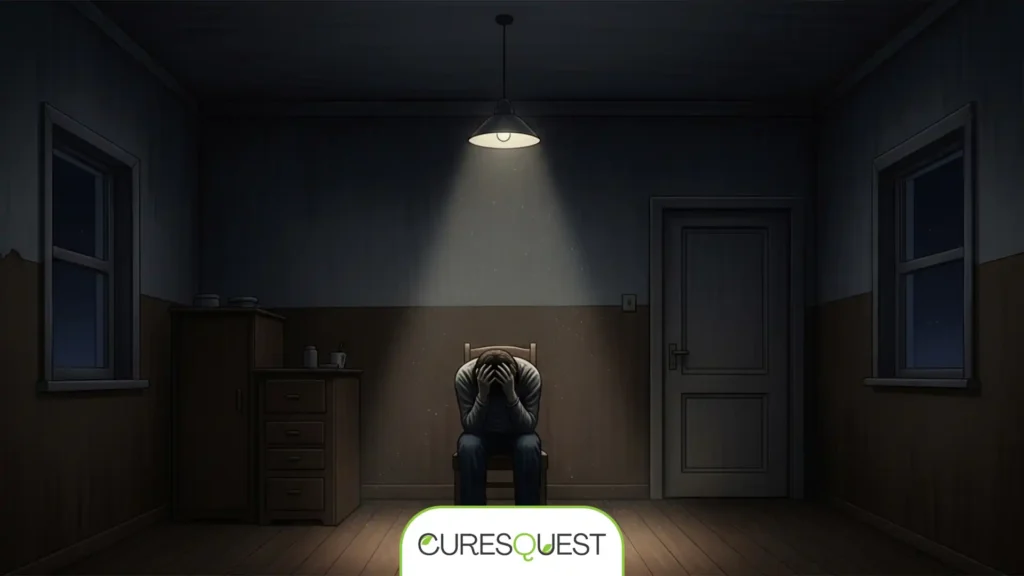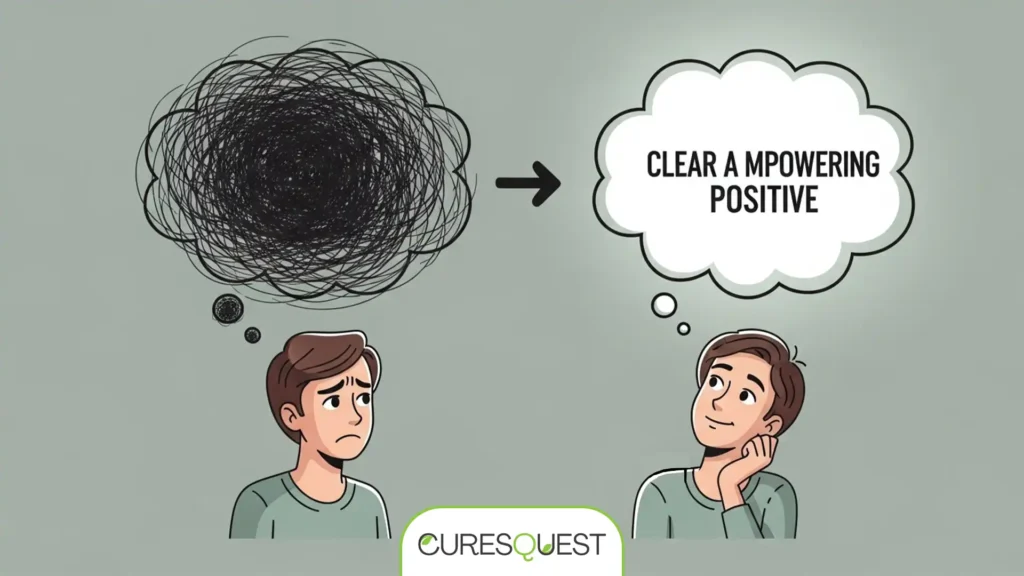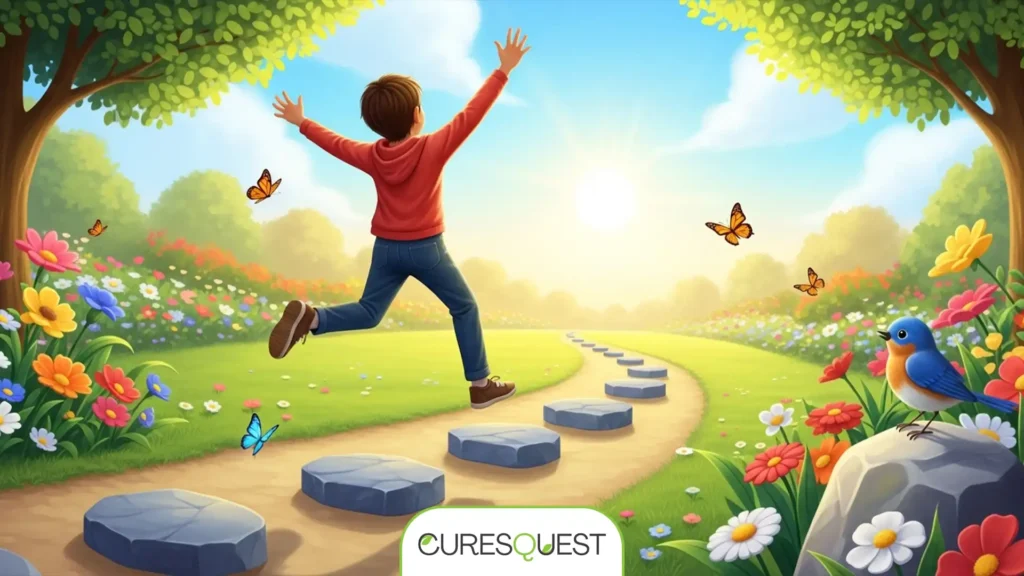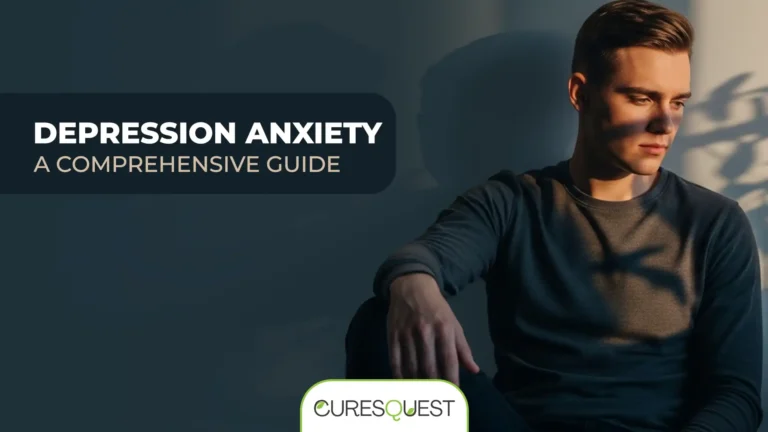Depression is a formidable adversary, a pervasive shadow that can dim the brightest parts of life. It’s more than just a fleeting feeling of sadness; it’s a complex mental health condition that can impact every facet of an individual’s existence, from their thoughts and emotions to their physical health and relationships. In a world that often demands constant productivity and relentless optimism, acknowledging and addressing depression can feel overwhelming. Yet, millions worldwide grapple with its debilitating effects, often in silence. The good news is that you are not alone, and crucially, there are effective strategies to navigate this challenging landscape.
This comprehensive guide is dedicated to empowering you with invaluable depression coping skills – practical, evidence-based tools and techniques designed to help you manage symptoms, build resilience, and reclaim a sense of well-being. We understand that the journey to recovery is unique for everyone, which is why we’ll explore a diverse array of strategies, from foundational self-care practices to advanced cognitive and behavioral interventions. Whether you’re just beginning to understand your depression or have been living with it for some time, our goal is to provide actionable insights and foster a sense of hope, guiding you toward a path of greater emotional stability and a more fulfilling life.
Table of Contents
Understanding Depression: More Than Just Sadness
Before diving into specific depression coping skills, it’s essential to grasp what depression truly is. It’s often misunderstood, sometimes dismissed as a personal failing or a temporary bad mood. However, clinical depression, or Major Depressive Disorder (MDD), is a serious medical illness that negatively affects how you feel, think, and act. It’s a condition characterized by persistent sadness and a loss of interest in activities once enjoyed, leading to a significant impairment in daily life.
What is Clinical Depression?
Clinical depression is a mood disorder that causes a persistent feeling of sadness and loss of interest. It’s different from the normal mood fluctuations and temporary emotional responses to everyday problems. Depression can lead to a variety of emotional and physical problems and can decrease a person’s ability to function at work and at home. The exact causes are complex and can involve a combination of genetic, biological, environmental, and psychological factors. Brain chemistry, hormone levels, and even certain medical conditions can play a role.
Recognizing the Symptoms
Symptoms of depression can vary from person to person in severity, frequency, and duration. Common signs include:
- Persistent sad, anxious, or “empty” mood
- Feelings of hopelessness, pessimism
- Irritability, restlessness
- Feelings of guilt, worthlessness, helplessness
- Loss of interest or pleasure in hobbies and activities
- Decreased energy, fatigue, feeling “slowed down”
- Difficulty concentrating, remembering, making decisions
- Difficulty sleeping, early-morning awakening, or oversleeping
- Appetite and/or weight changes
- Aches or pains, headaches, cramps, or digestive problems without a clear physical cause and/or that do not ease with treatment
- Thoughts of death or suicide, or suicide attempts
If you or someone you know is experiencing several of these symptoms for more than two weeks, it’s crucial to consider seeking professional help. Understanding these signs is the first step towards effective managing depression and finding appropriate support. Learn more about mental health basics.
The Impact of Untreated Depression
Untreated depression can have severe and far-reaching consequences. It can exacerbate physical health problems, impair work or academic performance, strain relationships, and significantly diminish overall quality of life. In its most severe forms, it can lead to self-harm or suicide. This underscores the critical importance of identifying symptoms early and actively engaging in SAMHSA’s resources for support and intervention. Ignoring depression doesn’t make it go away; it often allows it to deepen its hold.

The Power of Coping Skills in Depression Management
Coping skills are the strategies people use to deal with stressful situations, manage difficult emotions, and adapt to change. For individuals navigating depression, these skills are not merely helpful; they are essential tools for survival and recovery. They empower you to take an active role in your mental well-being, providing a sense of control and agency even when circumstances feel overwhelming.
Why Coping Skills Matter
Coping skills are vital because they:
- Reduce Symptom Severity: Regular application of effective depression coping skills can lessen the intensity and frequency of depressive episodes.
- Improve Emotional Regulation: They teach you how to identify, understand, and respond to your emotions in healthier ways, preventing emotional spirals.
- Build Resilience: By successfully navigating challenges, you develop a stronger capacity to bounce back from adversity.
- Enhance Problem-Solving: Many coping skills involve practical steps to address underlying issues contributing to depression.
- Promote Self-Efficacy: Learning to cope effectively boosts your confidence in your ability to handle future stressors.
- Support Long-Term Recovery: Coping skills are a cornerstone of sustainable mental wellness, complementing other forms of treatment like therapy and medication.
Active vs. Passive Coping
It’s important to distinguish between active and passive coping strategies. While both exist, active coping is generally more effective for long-term well-being:
- Active Coping: Involves directly addressing the stressor or the emotions it causes. Examples include problem-solving, seeking social support, exercising, journaling, or practicing mindfulness. These strategies require effort but lead to healthier outcomes.
- Passive Coping: Involves avoiding the stressor or suppressing emotions. Examples include excessive sleep, substance abuse, procrastination, or withdrawal from social activities. While these might offer temporary relief, they often exacerbate depression in the long run.
This guide focuses on active, constructive strategies for depression that promote healing and growth.
Foundational Depression Coping Skills: Building a Strong Base
Before tackling complex emotional or cognitive patterns, establishing a robust foundation of self-care is paramount. These foundational skills are often the easiest to implement and can provide significant relief, laying the groundwork for more advanced techniques.
Prioritizing Physical Health: Sleep, Nutrition, Exercise
The intricate connection between our physical and mental health cannot be overstated. Neglecting basic physical needs can worsen depressive symptoms, while addressing them can be a powerful form of self-help for depression.
The Role of Sleep Hygiene
Depression often disrupts sleep patterns, leading to insomnia or oversleeping, both of which can intensify feelings of fatigue and low mood. Practicing good sleep hygiene can make a significant difference.
- Establish a Routine: Go to bed and wake up at the same time each day, even on weekends.
- Create a Relaxing Environment: Ensure your bedroom is dark, quiet, and cool.
- Limit Stimulants: Avoid caffeine and nicotine, especially in the afternoon and evening.
- Wind-Down Rituals: Engage in calming activities before bed, like reading, a warm bath, or gentle stretching.
- Avoid Screens: The blue light from phones, tablets, and computers can interfere with melatonin production.
Fueling Your Body: Nutrition
What you eat directly impacts your brain chemistry and energy levels. While no diet can “cure” depression, a balanced, nutrient-rich diet can support brain health and mood stability.
- Balanced Meals: Focus on whole foods, lean proteins, fruits, vegetables, and complex carbohydrates.
- Omega-3 Fatty Acids: Found in fish like salmon, flaxseeds, and walnuts, these are crucial for brain function.
- Limit Processed Foods, Sugar, and Unhealthy Fats: These can lead to energy crashes and inflammation, potentially worsening mood.
- Stay Hydrated: Dehydration can cause fatigue and irritability.
Moving Your Body: Exercise
Physical activity is one of the most potent natural mood boosters. Exercise releases endorphins, natural mood elevators, and can also reduce stress hormones. It’s a powerful tool for coping strategies from GoodRx.
- Start Small: Even 10-15 minutes of brisk walking can make a difference.
- Find What You Enjoy: Whether it’s dancing, swimming, hiking, or yoga, consistency is key.
- Aim for Regularity: Try to incorporate at least 30 minutes of moderate exercise most days of the week.
- Outdoor Activity: Exposure to natural light can also improve mood and regulate sleep.
The Art of Self-Care
Self-care isn’t selfish; it’s essential for maintaining mental well-being, especially when dealing with depression. It involves intentionally taking steps to care for your physical, mental, and emotional health.

Mindfulness and Meditation
Mindfulness is the practice of being present and fully engaged in the current moment, observing thoughts and feelings without judgment. Meditation is a formal practice of mindfulness. Both can significantly reduce stress, anxiety, and depressive symptoms by training your mind to focus and detach from negative rumination. Explore mindfulness practices.
- Guided Meditations: Use apps or online resources to start.
- Mindful Breathing: Focus on your breath, noticing the sensation of air entering and leaving your body.
- Mindful Walking: Pay attention to the feeling of your feet on the ground, the sights, sounds, and smells around you.
The benefits of mindfulness extend beyond symptom reduction, fostering a deeper connection with yourself and the world.
Journaling for Emotional Processing
Journaling provides a private, non-judgmental space to explore your thoughts and feelings. It can help you:
- Identify Patterns: Recognize triggers and recurring negative thoughts.
- Process Emotions: Release pent-up feelings and gain clarity.
- Problem-Solve: Brainstorm solutions to challenges.
- Track Progress: See how far you’ve come in your journey.
There’s no right or wrong way to journal. Just start writing.
Engaging in Hobbies and Creative Outlets
When depressed, you often lose interest in activities you once enjoyed. Re-engaging with hobbies or exploring new creative outlets can be a powerful form of behavioral activation, bringing back joy and a sense of accomplishment.
- Rediscover Old Passions: What did you love to do before depression took hold?
- Explore New Interests: Try painting, playing an instrument, gardening, or writing.
- Connect with Others: Join a class or group related to your hobby.
Cognitive Depression Coping Skills: Reshaping Your Thoughts
Our thoughts play a monumental role in how we feel. Depression often involves distorted or negative thought patterns that can perpetuate the cycle of low mood and hopelessness. Cognitive coping skills focus on identifying and challenging these unhelpful thoughts, offering a powerful pathway to improving mood and perspective.
Identifying and Challenging Negative Thought Patterns (CBT Basics)
Cognitive Behavioral Therapy (CBT) is a highly effective therapeutic approach that forms the backbone of many cognitive coping skills. It teaches you to identify “cognitive distortions” – irrational or biased ways of thinking – and replace them with more balanced and realistic thoughts. Discover CBT techniques.
- All-or-Nothing Thinking: Seeing things in black and white (“If I’m not perfect, I’m a total failure”).
- Overgeneralization: Concluding that one negative event is a never-ending pattern of defeat (“I failed this task, so I’ll fail at everything”).
- Mental Filter: Dwelling on the negatives and ignoring the positives.
- Disqualifying the Positive: Rejecting positive experiences by insisting they “don’t count.”
- Jumping to Conclusions: Mind reading (assuming what others are thinking) or fortune-telling (predicting negative outcomes).
- Catastrophizing: Exaggerating the importance of minor setbacks or predicting the worst possible outcome.
- Emotional Reasoning: Assuming that your negative emotions reflect reality (“I feel like a failure, therefore I am a failure”).
- “Should” Statements: Criticizing yourself (or others) with “shoulds,” “musts,” and “oughts.”
- Labeling: Assigning global, negative labels to yourself or others (“I’m a loser” instead of “I made a mistake”).
- Personalization: Believing you are responsible for negative events that are beyond your control.
The first step is simply to notice when these thoughts arise. Cognitive behavioral therapy provides structured ways to challenge these patterns.

Cognitive Restructuring Techniques
Once you’ve identified a negative thought, you can actively challenge it:
- Evidence Gathering: What evidence supports this thought? What evidence contradicts it?
- Alternative Explanations: Are there other ways to look at this situation?
- Decatastrophizing: What’s the worst that could happen? How likely is that? If it did happen, how would I cope?
- Cost-Benefit Analysis: What are the pros and cons of holding onto this thought?
- Perspective-Taking: What would I tell a friend in this situation?
- Self-Compassion: Treat yourself with the same kindness and understanding you would offer a loved one.
Practicing Gratitude
Shifting your focus to what you are grateful for can rewire your brain to notice more positive aspects of life. It doesn’t negate the pain of depression but provides a counterbalance.
- Gratitude Journal: Write down 3-5 things you’re grateful for each day.
- Gratitude Walk: As you walk, mentally note things you appreciate in your surroundings.
- Express Gratitude: Thank someone in your life for something they did.
Behavioral Depression Coping Skills: Taking Action
While thoughts influence feelings, actions also profoundly impact our mood. Behavioral coping skills focus on engaging in activities that are either pleasurable or provide a sense of accomplishment, even when motivation is low. This is often referred to as behavioral activation.
Behavioral Activation: Re-engaging with Life
Depression often leads to withdrawal and inactivity, which further fuels the depressive cycle. Behavioral activation encourages you to schedule and engage in activities that are meaningful or enjoyable, regardless of how you feel in the moment. The idea is that “action precedes motivation,” rather than waiting for motivation to strike. It’s a key component of therapy worksheets for depression.
- Activity Scheduling: Plan specific times for specific activities, even small ones.
- Pleasure vs. Mastery: Include activities that bring joy (e.g., listening to music) and activities that provide a sense of accomplishment (e.g., cleaning a small area).
- Break Down Tasks: If a task feels too big, break it into smaller, manageable steps.
- Monitor Mood: Notice how your mood shifts after engaging in these activities.
Even a 5-minute walk or washing a single dish can be a victory.

Setting Achievable Goals
Overly ambitious goals can lead to feelings of failure and exacerbate depression. Setting small, realistic, and achievable goals provides a sense of progress and competence, which can gradually build momentum.
- SMART Goals: Make goals Specific, Measurable, Achievable, Relevant, and Time-bound.
- Focus on Process, Not Just Outcome: Celebrate the effort you put in, not just the result.
- Adjust as Needed: Be flexible and willing to modify goals if they become too overwhelming.
Structured Problem-Solving
Depression can make problems seem insurmountable. A structured approach to problem-solving can break down challenges into manageable steps, reducing feelings of helplessness.
- Identify the Problem: Clearly define the issue.
- Brainstorm Solutions: List all possible solutions, no matter how outlandish.
- Evaluate Solutions: Consider the pros and cons of each.
- Choose a Solution: Select the most feasible option.
- Implement the Solution: Take action.
- Review the Outcome: Did it work? What can be adjusted?
Exposure Therapy (for anxiety comorbidity)
While primarily used for anxiety disorders, many people experience anxiety alongside depression. Exposure therapy, under professional guidance, involves gradually confronting situations or objects that trigger fear or avoidance. By repeatedly facing these fears in a safe environment, you learn that the feared outcome is unlikely, or that you can cope with it. This can be a powerful tool for overcoming social anxiety or phobias that contribute to isolation and depression.
Emotional Regulation Depression Coping Skills: Managing Intense Feelings
Intense emotions like sadness, anger, and anxiety are hallmarks of depression. Learning to regulate these feelings, rather than being overwhelmed by them, is a crucial skill for emotional resilience.
Deep Breathing and Relaxation Techniques
When you’re stressed or anxious, your breathing becomes shallow and rapid. Deep breathing exercises can activate your parasympathetic nervous system, promoting relaxation and calming your mind and body.

- Diaphragmatic Breathing: Breathe deeply from your belly, not just your chest. Inhale slowly through your nose, feeling your abdomen rise, then exhale slowly through your mouth.
- 4-7-8 Breathing: Inhale for 4 counts, hold for 7, exhale for 8. Repeat several times.
- Progressive Muscle Relaxation: Tense and then relax different muscle groups throughout your body, noticing the contrast.
Grounding Techniques
When you feel overwhelmed, panicky, or disconnected from reality, grounding techniques help bring your focus back to the present moment and your physical surroundings. These are excellent practical coping strategies for both anxiety and depression.
- 5-4-3-2-1 Method: Identify 5 things you can see, 4 things you can touch, 3 things you can hear, 2 things you can smell, and 1 thing you can taste.
- Sensory Focus: Hold an ice cube, listen to specific sounds, or focus on a strong scent.
- Physical Movement: Wiggle your toes, tap your feet, or gently stretch.
Emotional Validation and Acceptance
Instead of fighting or judging your emotions, practicing validation and acceptance involves acknowledging them without judgment. This doesn’t mean you like the feeling, but you accept its presence. “It’s okay to feel sad right now. This feeling will pass.” This approach, often used in Dialectical Behavior Therapy (DBT), helps reduce the secondary suffering that comes from resisting emotions.
Social and Connection-Based Coping Skills
Depression thrives in isolation. Connecting with others and fostering healthy relationships are powerful antidotes to the loneliness and withdrawal that often accompany the condition.
Building and Nurturing Support Systems
A strong support network can provide emotional comfort, practical assistance, and a sense of belonging. Find ways to connect.
- Reach Out: Connect with trusted friends, family members, or mentors.
- Join Support Groups: Sharing experiences with others who understand can be incredibly validating.
- Professional Help: A therapist or counselor is a crucial part of a support system.
- Set Boundaries: Learn to say no to things that drain your energy, and yes to things that nourish you.
Building a support network is not a sign of weakness, but a testament to your strength.

Effective Communication
Depression can make communication challenging, leading to misunderstandings and further isolation. Learning to express your needs and feelings clearly and assertively can strengthen relationships.
- “I” Statements: Focus on your feelings rather than blaming others (“I feel overwhelmed” instead of “You make me feel overwhelmed”).
- Active Listening: Truly hear what others are saying without interrupting or formulating your response.
- Be Specific: Clearly articulate what you need from others.
Volunteering and Helping Others
Shifting focus from your internal struggles to helping others can provide a sense of purpose, boost self-esteem, and reduce feelings of isolation. Even small acts of kindness can generate positive feelings.
- Find a Cause You Care About: Align your efforts with your values.
- Start Small: Offer help to a neighbor, or volunteer for a few hours.
- Notice the Impact: Acknowledge the positive difference you are making.
Advanced Strategies and When to Seek Professional Help
While self-help depression coping skills are incredibly valuable, depression is a serious illness that often requires professional intervention. Knowing when and how to seek help is a critical coping skill in itself.
Therapy Options (CBT, DBT, ACT)
Therapy provides a structured environment to learn and apply advanced coping strategies under the guidance of a trained professional.
- Cognitive Behavioral Therapy (CBT): As discussed, focuses on identifying and changing negative thought patterns and behaviors.
- Dialectical Behavior Therapy (DBT): Emphasizes mindfulness, distress tolerance, emotional regulation, and interpersonal effectiveness. Highly effective for intense emotional dysregulation.
- Acceptance and Commitment Therapy (ACT): Encourages acceptance of difficult thoughts and feelings while committing to actions aligned with your values.
Medication Management
For many individuals, antidepressant medication can be a vital component of treatment, especially for moderate to severe depression. Medications can help rebalance brain chemistry, making it easier to engage with therapy and coping skills. This should always be discussed with a psychiatrist or medical doctor.
Knowing When to Reach Out
It’s important to recognize when self-help strategies are not enough. Consider seeking professional help if:
- Your symptoms are severe or persistent.
- You are experiencing thoughts of self-harm or suicide.
- Your depression is significantly impairing your daily life (work, relationships, self-care).
- You feel overwhelmed and unable to cope on your own.
- Your current coping skills are no longer effective.
Reaching out is a sign of strength, not weakness. Professional support can provide a safe space to explore the roots of your depression and develop tailored effective coping strategies for depression.
Developing a Personalized Coping Plan
The most effective approach to managing depression is to create a personalized coping plan that integrates various strategies tailored to your unique needs and preferences. This plan should be dynamic, allowing for adjustments as your circumstances and symptoms change. A structured approach helps in navigating depressive episodes and building long-term resilience.
Consider the following framework for your personalized plan:
| Coping Skill Category | Specific Strategy/Activity | Frequency/Duration | Triggers/Situations to Use |
|---|---|---|---|
| Physical Health | Morning walk in nature | 30 mins, 5x/week | Low energy, feeling sluggish |
| Physical Health | Balanced meal prep | Sunday (prep), Daily (consume) | Lack of motivation to cook |
| Self-Care/Mindfulness | Guided meditation (Headspace/Calm) | 10 mins, daily | Anxiety, racing thoughts |
| Self-Care/Creative | Journaling (free writing) | 15 mins, 3x/week | Overthinking, emotional overwhelm |
| Cognitive | Thought challenging (using CBT worksheet) | As needed, focus on 1-2 thoughts | Negative self-talk, hopelessness |
| Behavioral Activation | Complete one small chore (e.g., wash dishes) | Daily, when motivation is low | Feeling unproductive, apathy |
| Emotional Regulation | 4-7-8 breathing exercise | As needed, 3-5 rounds | Panic, intense sadness |
| Social Connection | Call a trusted friend/family member | 2x/week | Loneliness, withdrawal |
| Professional Support | Therapy session | Weekly | Persistent symptoms, major stressors |
Regularly review and update your plan. What works one week might need tweaking the next. The key is flexibility and self-compassion. This matrix helps you track what works best for your mental wellness journey.
Common Pitfalls and How to Avoid Them
Even with a robust arsenal of depression coping skills, the path to recovery isn’t always linear. It’s common to encounter setbacks or fall into patterns that hinder progress. Recognizing these pitfalls can help you navigate them more effectively.
Procrastination and Avoidance
Depression often saps motivation, making it incredibly difficult to start or sustain coping behaviors. The urge to procrastinate or avoid difficult feelings and tasks is strong. However, yielding to this urge often reinforces the depressive cycle.
- Strategy: Use behavioral activation. Break tasks into tiny steps. Focus on starting, not finishing. “Just 5 minutes” can often lead to more.
- Strategy: Acknowledge the avoidance without judgment, then gently redirect yourself to a small, manageable coping activity.
Over-reliance on Unhealthy Coping Mechanisms
In an attempt to escape pain, people sometimes turn to alcohol, drugs, excessive eating, compulsive internet use, or other unhealthy behaviors. While these might offer temporary relief, they ultimately worsen depression and create new problems.
- Strategy: Identify your unhealthy coping patterns. Understand the underlying need they’re trying to meet.
- Strategy: Replace unhealthy coping with healthy alternatives from your personalized plan. Seek professional help if substance abuse is a concern.
Expecting Instant Results
Recovery from depression is a process, not an event. It takes time, effort, and patience. Expecting immediate and complete relief after implementing a few coping skills can lead to disappointment and discourage further effort.
- Strategy: Practice self-compassion. Celebrate small victories. Recognize that progress often comes in waves.
- Strategy: Focus on consistency over intensity. Even small, consistent efforts compound over time.
Frequently Asked Questions
What are the most effective depression coping skills?
The most effective depression coping skills are often a combination of strategies tailored to the individual. Generally, foundational skills like regular exercise, balanced nutrition, and good sleep hygiene are crucial. Cognitive behavioral techniques (challenging negative thoughts), behavioral activation (engaging in meaningful activities), and building strong social support systems are also highly effective and evidence-based.
How can I start developing coping skills when I have no motivation?
Start incredibly small. Don’t wait for motivation; let action create it. Choose one tiny, manageable activity, like drinking a glass of water, taking a 5-minute walk, or listening to one song. Focus on consistency rather than perfection. Use activity scheduling to plan these small steps, and celebrate every small victory. Consider using 101 Coping Skills for ideas.
Are coping skills enough to treat severe depression?
While coping skills are powerful and essential, for moderate to severe depression, they are usually most effective when combined with professional treatment like psychotherapy (e.g., CBT, DBT, ACT) and, in some cases, medication. Coping skills empower you to manage symptoms day-to-day, but a mental health professional can provide comprehensive support and guidance.
How do I know if a coping skill is working for me?
Pay attention to your mood and energy levels before and after using a coping skill. Does it provide even a slight sense of relief, calm, or accomplishment? Keep a journal or use a mood tracker to note the impact of different strategies. If a skill consistently makes you feel worse or doesn’t help, it might not be the right fit for you, or it might need to be adapted.
Can lifestyle changes really help with depression?
Absolutely. Lifestyle changes are a cornerstone of effective depression coping skills. Regular physical activity, a nutritious diet, adequate sleep, and mindful practices can significantly impact brain chemistry, reduce stress hormones, and improve overall mood and energy. These changes create a more resilient foundation for managing the symptoms of depression.
What if my coping skills stop working?
It’s normal for coping skills to feel less effective at times, especially during periods of increased stress or worsening symptoms. This doesn’t mean you’ve failed. It’s an opportunity to revisit your personalized coping plan, adjust strategies, or explore new ones. It’s also a clear signal to reach out to your therapist or doctor to discuss potential adjustments to your treatment plan.
Where can I find more resources for depression coping skills?
Many reputable organizations offer resources. Websites like the National Institute of Mental Health (NIMH), Mental Health America (MHA), and HelpGuide.org provide extensive information, articles, and tools. You can also find useful Helpguide’s insights on coping with depression. Always consult with a mental health professional for personalized advice and treatment.
Conclusion
Navigating depression is one of life’s most profound challenges, but it is a journey you don’t have to walk alone or without tools. By actively engaging with a diverse array of depression coping skills, you equip yourself with the power to manage symptoms, challenge negative thought patterns, foster emotional resilience, and rebuild a life filled with purpose and connection. From the foundational pillars of physical health and self-care to advanced cognitive and behavioral strategies, each skill you cultivate contributes to your overall well-being and strengthens your capacity to face adversity. Remember that recovery is a continuous process, marked by small victories and ongoing learning. Be patient and compassionate with yourself, and never hesitate to seek professional guidance when needed. Your journey towards healing and resilience is not just possible; it’s within your grasp, one coping skill at a time.
Embrace these strategies, build your personalized plan, and take the courageous steps towards a brighter, more stable future. For further support and to explore more actionable strategies, we encourage you to consult expert resources and consider professional mental health care. Your well-being is worth the effort, and a life of greater peace and emotional freedom awaits. Take the first step today.








